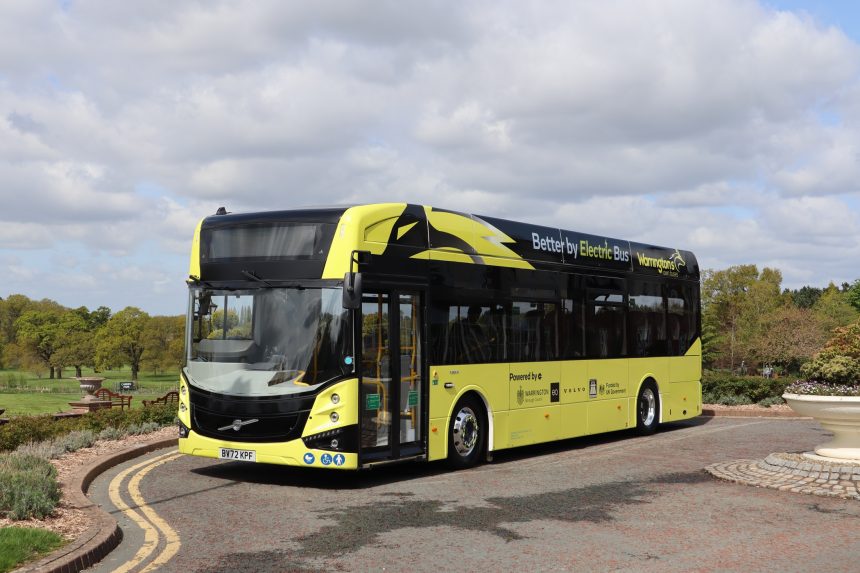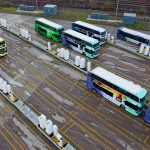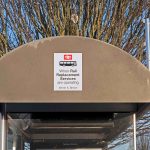Zero-emission buses should sit alongside wider bus policy work and funding if they are to maximise their impact, representatives of Warrington’s Own Buses and its parent Warrington Borough Council (WBC) told the ALBUM conference in April.
The operator is amid a shift that will move its fleet to battery-electric, with 105 Volvo BZLs on order. A new depot to support them is already delivered, all backed by Zero Emission Bus Regional Areas (ZEBRA) funding and investment from WBC.
Bus Service Improvement Plan (BSIP) money is also leading to improvements in the Cheshire town. It sits between the Liverpool City Region and Greater Manchester, where franchising is in hand and underway, respectively. Both of those conurbations use yellow on their public transport vehicles, and it is for that reason that the BZL fleet will carry the same colour.
WBC wants significant shift to bus and active travel modes by 2041. That will require “difficult decisions,” says Transport for Warrington Service Manager Stephen Hunter, who notes that the town had the “unenviable record” of losing bus patronage at the fastest rate of all local transport authority areas in England between 2011 and 2016.
Government money is key to those plans. Mr Hunter says that Combined Authority areas to the east and west of Warrington each have around four times the funding per head for transport as it does, but that strides are nevertheless being made in improving service provision.
ZEBRA money for the BZL fleet is integrated with the town’s Local Transport Plan, its 2019 climate emergency declaration, and BSIP aims and funding. The A49 corridor through Warrington is receiving major investment in priority measures as part of that.
That will involve bus lanes and bus gates along with traffic signal priority, with confidence that the measures will deliver up to a 2.5-minute saving in bus journey times during peaks.
Other infrastructure work relates to stops. Bus shelters in Warrington have been replaced under an arrangement that generates advertising revenue, while real-time information and digital timetables form part of a programme of future updates. Multi-operator tap on, tap off payments also sit under that heading along with further priority measures.
Extension of zero-emission to other bus operators in Warrington is a policy aspiration. The municipal has around an 80% market share in the town, but WBC wants all buses there to move away from diesel.
Warrington’s Own Buses’ work on battery-electric was originally intended to facilitate 120 such buses, but that was pared back to 105. The new depot has passive provision for the higher number, although WBC observes that charging infrastructure has been the biggest challenge in making the shift.
The depot has a 6MVA supply, but that is only available between 2300-0600hrs. For the remainder of the time, 2MVA is the maximum.



























